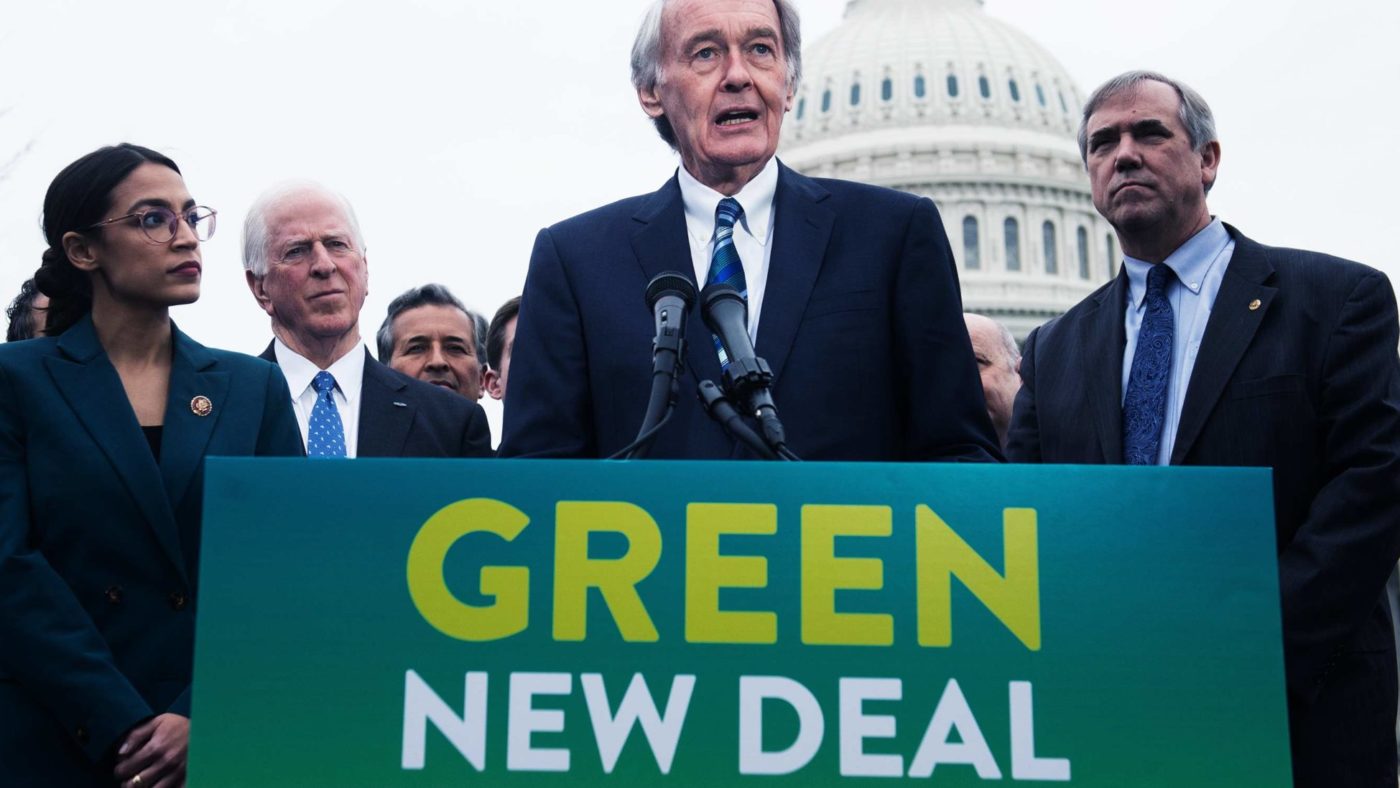Supporters of the Green New Deal may not question the science on the origins of humankind, but their faith in their own ability to reshape the economy belies any hope that they appreciate the iterative processes by which markets evolve as a function of human behavior.
It’s a blind spot for any socialists who like to see themselves as faithful followers of scientific discovery.
The latest science on complex adaptive systems, such as national economies, demands that we understand wealth as a product of evolutionary processes, not government fiat. This means that whether you’re a real estate mogul or a bartender, you can’t make credible promises about how an economy will fare as a result of your attempts to manipulate it.
Faith, not science, is what allows us to think we comprehend what is not yet comprehensible, and even science is not immune to being the object of false hope. It was Warren Weaver, famed mathematician of the Rockefeller Foundation, who in 1948 identified the boundary beyond which scientific problems cannot be tackled by statistics and computational power alone.
He described this category of phenomena as organized complexity, and his work helped to fuel what today has become an interdisciplinary field of research focused on systems as diverse as termites’ nests, weather systems, and trade markets. Those dynamic systems exhibit unfathomably large numbers of interrelated variables and therefore stymie the science of prediction.
According to the Santa Fe Institute—one of the most prominent research organizations studying the science of complexity—such systems are often wildly sensitive to even the smallest variance in their initial conditions, which are virtually impossible to measure with precision.
It was 25 years after Weaver’s paper was published that F.A. Hayek would give his Nobel prize lecture on the “pretense of knowledge,” warning economists not to be lured into thinking the only data needed for their models to yield scientific truths are those economists are capable of measuring. A limit on what we can measure is a stubborn inconvenience for those quick to adopt a posture of certitude in support of central planning.
Fast forward to the modern era, and Hayek’s views are no less relevant, though they are now arguably communicated even more persuasively.
Eric Beinhocker, executive director of Oxford University’s Institute for New Economic Thinking, assessed the pursuit of prediction this way:
[T]he dream of a clockwork universe ended for science in the twentieth century, and is ending for economics in the twenty-first. The economy is too complex, too nonlinear, too dynamic, and too sensitive to the twists and turns of chance to be amenable to prediction.
The pervasive and malignant disregard for complexity by those in power was famously captured by the temper tantrum-like complaint of Charles de Gaulle when he said of France, “How can one govern a country which has 258 cheeses?” It is an early version of the same pesky irritation felt by Bernie Sanders when he lamented the ample varieties of deodorants available to modern consumers.
Like nature itself, the wild and dizzying complexity of a modern economy inspires many to yearn for controlled simplicity. And, yet, putting faith in a simple answer when there may not be one can lead to grave and unforgivable errors, especially when backed by political power.
It is unlikely that, at the moment, Nicolas Maduro is feeling vexed by the inordinate number of cheeses available to Venezuelans, a very sad consequence of the tragic and simplistic thinking he and his predecessor imposed on the lives of millions of people.
The common craving for collectivist solutions is often itself an indulgence in simplicity. Milton Friedman suggested as much in a 1974 interview when he said:
[A] major reason why intellectuals tend to move towards collectivism is that the collectivist answer is a simple one. If there’s something wrong, pass a law and do something about it. If there’s something wrong it’s because of some no-good bum, some devil, evil and wicked—that’s a very simple story to tell.
The Green New Deal is the archetype of this kind of thinking. It is a wish list that denies the science of market evolution. The economy is a complex adaptive system that will not be tamed into submission by linear assumptions dressed up as moral imperatives, no matter how resolutely we feel about them.
Beinhocker offers this alternative: “We may not be able to predict or direct economic evolution, but we can design our institutions and societies to be better or worse evolvers.” We can’t design our economy after our own image, but we can honor evolution by ensuring an unconstrained ecosystem where individuals enjoy wide latitude to interact iteratively in search of viable solutions to social problems.
The evolutionary philosopher Daniel Dennett describes this strategy as a search algorithm that “finds needles of good design in haystacks of possibility.” We can find good design—and solutions to our most pressing problems—but only if we stop denying the science of market evolution.
This article was originally published on FEE.org. Read the original article.
CapX depends on the generosity of its readers. If you value what we do, please consider making a donation.


